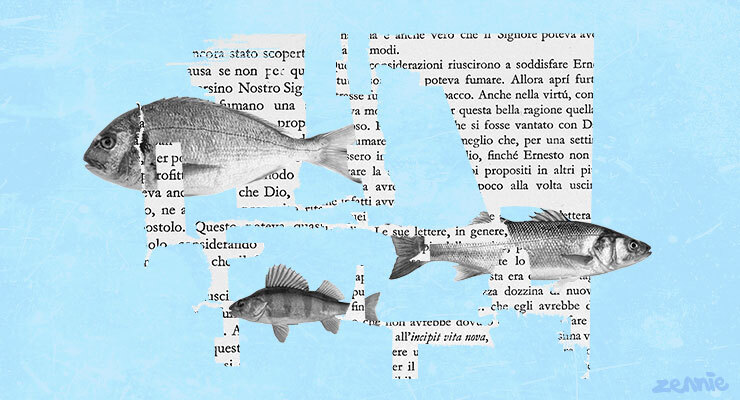
A science journal’s decision to keep a study about fish published despite findings it was fraudulent has scientists concerned about the integrity and teeth of research regulation in Australia.
“If you find something wrong with a paper, no matter how serious, the burden of proof is on you, not the author, not the journal, not the institution,” Deakin University fish physiologist and key whistleblower in the fabricated fish studies Associate Professor Timothy Clark told Crikey.
The paper in question was published in the Proceedings of the Royal Society B: Biological Sciences in 2016 by marine ecologists Danielle Dixson of University of Delaware (previously of James Cook University) and Anna Scott of Southern Cross University, as reported by Science. It was one of 22 studies published between 2008 and 2018 that allegedly used dodgy data to document dramatic behavioural change in fish exposed to increases in CO2.
Dixson’s James Cook University PhD supervisor, the now retired Philip Munday, is at the centre of complaints. In an email to Crikey, Munday said he had “no involvement” with the paper.
An independent investigation by the University of Delaware found that three of Dixson’s papers required retraction on the basis of research misconduct — namely duplicated data and an impossible number of experiments in the time frame reported.
The panel also found a broader pattern of “sloppiness, poor recordkeeping, copying and pasting within spreadsheets, [and] errors within many papers under investigation”, but its requests for retraction were ignored by the journal on the basis that its own “detailed two-stage investigation” was (not clean, but …) not dirty enough to warrant retraction.
In an editor’s note, the journal said most of its concerns were cleared up when the authors published a correction on the piece (clarifying the experimental time frame) and provided public access to the data (albeit riddled with errors).
Professor David Vaux, fellow of the Australian Academy of Science and long-term advocate for the establishment of an Australian office of research integrity, said it was an indictment on Australian research that journals could trump independent investigations with their own reviews and universities and authors could simply dodge any and all responsibility for their actions.
“If someone writes a cheque with a false signature, to just rub it out and put in another one doesn’t take away the crime,” he said.
“It’s the same ‘self-regulation’ model they used in the church and financial institutions. Everything’s against the authors wanting to clean things up and everything is protecting the institution and journals who don’t want to take any action.”
Australia stands out as one of the few countries without an independent body to regulate research integrity. China has one, as do 23 European nations. Sweden was the latest to join. It was the Swedish body — the National Board for Assessment of Research Misconduct — that allowed Clark and his co-whistleblowers to finally have their complaints against the fabricated fish studies heard, escalated and actioned.
Clarks said without an equivalent systemic overhaul in Australia, existing research is undermined, current research must compete with false narratives, and future research is stalled because resources are poured into correcting the record.
“We’ve spent years and years and years chasing this,” he said. “It’s not our jobs to be doing this thing. But the problem is it’s currently no one’s job in Australia.”








That comment attributed to Professor David Vaux that:
““It’s the same ‘self-regulation’ model they used in the church and financial institutions. …… ”,
says it all.
‘Self-regulation’ is only a thinly disguised euphemism for ‘no regulation’ (except of course, in the fanciful, dreamworld imagination of a neo-liberal economist).
Neo-liberalism poisons everything that it comes into contact with (there is nothing to my knowledge that it has not adversely affected) and unfortunately science is no exception
This is unsurprising.
I was lead author for a peer-reviewed paper that got published when I was doing my undergrad degree.
We had the best intentions, but after publication I found a pretty big problem with a section of our paper.
If a bunch of 2nd year undergrads can get a paper peer-reviewed and published, maybe the bar is set too low…
How long ago was that? I can’t imagine that happening very much these days, especially in a top tier journal. Very few second years students would have the skills to undertake that level of research.
You discuss the need for “…an independent body to regulate research integrity. China has one, …” is this irony???
Obviously China has a higher regard for science than Australia. Wish you could name and shame the Journal
Im sure the Chinese regulator does what it is told so that may not be a good example. However in good old Oz they would seem to have the edge. About time we fixed this.